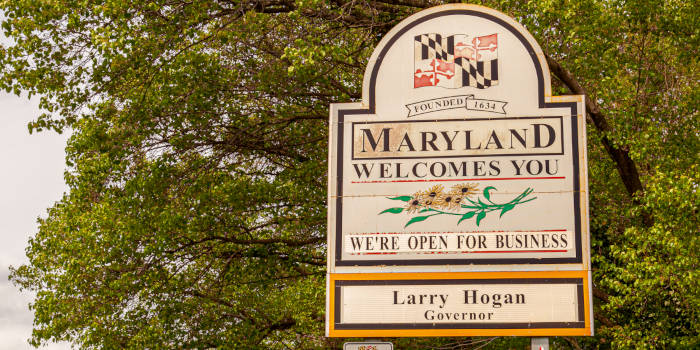Interstate Gambling Compacts in the Cards for Pennsylvania, Michigan

Interstate gambling compacts may bring a lot of benefits to the already blooming US online gambling market. Such compacts enable states to share pools of online players. Reportedly, the regulators in Pennsylvania and Michigan are showing interest in expanding gambling to include interstate compacts.
Interstate Gambling Compacts to Bring Benefits
There are currently five US states that offer interactive table games, slots, poker, as well as online casinos. While Nevada only allows online poker, the other states that offer complete online gambling entertainment are Michigan, Pennsylvania, New Jersey, West Virginia and Delaware. With that in mind, the already booming online market in the US has the potential to grow further. That can be accomplished via interstate online gambling compacts. Such compacts may allow platforms within legalized markets to share pools with poker players for example.
Two states that may consider creating or joining an interstate compact are Pennsylvania and Michigan. According to Pokerfuse, regulators at both states have shown interest in creating or joining an interstate compact. With that in mind, the Michigan Gaming Control Board (MGCB) and the Pennsylvania Gaming Control Board (PGCB) are yet to reveal whether a possible uncertainty related to the Federal Wire Act is stopping the states from taking further actions.
Legal Hurdle: The Federal Wire Act
One legal hurdle that may be stopping US states from implementing interstate compacts is the legal battle related to the Federal Wire Act. The act has been applied for decades only to online sports gambling. This in other words means that states were not banned from establishing interstate compacts. However, recently, the Department of Justice (DOJ) decided to interpret the Wire Act differently, saying that the ban wasn’t limited only to sports gambling.
Many US states did not like DOJ’s change of view. Consequently, more than two dozen Attorney Generals challenged the decision in court. As a result, the DOJ lost the court battle and was left with no other option but to reconsider its position regarding the Wire Act. In other words, the court’s ruling acknowledged that the Wire Act applies only to sports betting.
So Far Michigan and Pennsylvania Are Patiently Waiting
Mary Kay Bean, spokeswoman for the MGCB recently told Pokerfuse that joining or creating an interstate compact is something that the state finds interesting. With that in mind, last December, Governor Gretchen Whitmer signed SB 991. The bill consequently became law in March this year. Now, according to Bean, SB 991 empowered MGCB to enter into interstate compacts.
While all of this sounds good and both Pennsylvania and Michigan may benefit from interstate compact, one of the reasons Michigan may be holding off are the current state laws. The Lawful Internet Gaming Act in Michigan requires interstate agreements to be in line with both “federal and state laws.” Undoubtedly, if the two states enter into or create an interstate compact, there will be many benefits to come. However, given the current situation regarding the Wire Act, both states may need to cautiously wait.
Jerome is a welcome new addition to the Gambling News team, bringing years of journalistic experience within the iGaming sector. His interest in the industry begun after he graduated from college where he played in regular local poker tournaments which eventually lead to exposure towards the growing popularity of online poker and casino rooms. Jerome now puts all the knowledge he's accrued to fuel his passion for journalism, providing our team with the latest scoops online.














